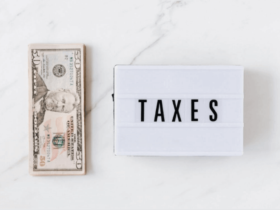What Is a Loan?
A loan is a money borrowed from a creditor that you pay back with interest. Loans can secure or unsecured.
A loan is money you borrow from a financial institution – a bank, credit union, or online lender – or a person, like a family member, and later pay back in full, including interest.
Loans may be for a specific, one-time amount, or they may be available as an open-ended line of credit up to a specified limit.
Revising loans or lines can repurchase, repaid, and spent, while term loans fixed-rate, fixed-payment loans.
Loans come in many different forms including secured, unsecured, commercial, and personal loans companies.
A loan can secured by collateral such as a mortgage or it can unsecured such as a credit card.
READ ALSO : What Is Interest? And How Does Interest Work?
Understanding Loan
A loan is a form of a loan made by an individual or other institution. The lender usually a corporation, financial institution, or government pays the borrower an amount of money in advance.
In return, the borrower agrees to a fixed set of conditions, including any finance charges, interest, repayment date, and other terms.
In some cases, the lender may require collateral to secure the loan and ensure repayment.
Loans can also take as bonds and certificates of deposit (CDs). It is also possible to take a loan from a 401 (k) account.
How the Loan Process Works
When someone needs money, they apply for loans from a bank, corporation, government, or other institution.
The borrower may require to provide specific details such as the reason for the loan, their financial history, Social Security Number (SSN), and other information.
The lender reviews the information, including the person’s debt-to-income (DTI) ratio, to see if the loans can be repaid.
Depending on the creditworthiness of the applicant, the lender either rejects or approves the application. The lender must state a reason that the loan application should reject.
If the application approved, both parties sign a contract that outlines the details of the agreement. The lender advances the loan proceeds, after which the borrower will have to repay the amount, including any additional fees, including interest.
The terms of the loans agreed to by each party before any money or property changed or disbursed. If the lender requires collateral, the lender outlines it in the loan documents.
Most loans have a maximum amount of interest as well as other covenants, such as the period before repayment.
Loans advanced for several reasons, including major purchases, investments, renewals, debt consolidation, and business ventures.
Loans also help existing companies to expand their operations. Debt allows an economy to open up competition by increasing the overall money supply and lending to new businesses.
Interest and fees from loans are a primary source of revenue for many banks, as well as some retailers through the use of credit facilities and credit cards.
READ ALSO : What Is Life Insurance? Types of Life Insurance?
Types of loan
Secured loans
For secured loans, the lender uses a physical asset like your house or car, if you cannot repay the agreed loan then secure its money.
Mortgage and car loans secured loans, as they both backed or secured by collateral.
In these cases, collateral is the property for which the loan is taken, so the collateral for a mortgage is the home, while the vehicle secures a car loan.
Borrowers may need to impose other forms of collateral for other types of secured loans if necessary.
The lender bases your credit score and credit history as well as your interest rate on the asset. Secured loans generally have a lower interest rate than unsecured loans.
Unsecured loans
Lenders offering unsecured loans base your interest rate only on your credit score and credit history.
Credit cards and signature loans unsecured loans. This means that they not supported by any collateral.
If you do not pay the agreed loan, the lender may not forfeit any of your assets, but it may report a default to the credit bureau, which shows your credit score and your ability to obtain another loan in the future Will hurt.
Unsecured loans generally have a higher interest rate than secured loans because the risk of default is greater than that of secured loans.
This is because the lender of a secured loan can withdraw the collateral if the borrower defaults.
Rates on unsecured loans vary widely depending on several factors, including the borrower’s credit history.
Frequently Asked Questions
READ ALSO : What Is Personal Lines Insurance?
READ ALSO : What Is Permanent Life Insurance?








